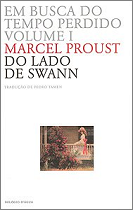World Theatre Day
International Message by Robert LepageThere are a number of hypotheses on the origins of theatre but the one I find the most thought-provoking takes the form of a fable:
One night, at the dawn of time, a group of men were gathered together in a quarry to warm themselves around a fire and tell stories. All of a sudden, one of them had the idea to stand up and use his shadow to illustrate his tale. Using the light from the flames he made characters appear, larger than life, on the walls of the quarry. Amazed, the others recognized in turn the strong and the weak, the oppressor and the oppressed, the god and the mortal.
Nowadays, the light of projectors has replaced the original bonfire, and stage machinery, the walls of the quarry. And with all due deference to certain purists, this fable reminds us that technology is at the very beginnings of theatre and that it should not be perceived as a threat but as a uniting element.
The survival of the art of theatre depends on its capacity to reinvent itself by embracing new tools and new languages. For how could the theatre continue to bear witness to the great issues of its epoch and promote understanding between peoples without having, itself, a spirit of openness? How could it pride itself on offering solutions to the problems of intolerance, exclusion and racism if, in its own practice, it resisted any fusion and integration?
In order to represent the world in all its complexity, the artist must bring forth new forms and ideas, and trust in the intelligence of the spectator, who is capable of distinguishing the silhouette of humanity within this perpetual play of light and shadow.
It is true that by playing too much with fire, we take a risk, but we also take a chance: we might get burned, but we might also amaze and enlighten.










 Futebol de Praia
Futebol de Praia  Futebol jovem: um guia completo de treino para o jovem jogador
Futebol jovem: um guia completo de treino para o jovem jogador 
 O Duplo
O Duplo 
 Nós, os Portugueses
Nós, os Portugueses




 Albert Einstein e a Experiência do Conhecimento em Física,
Albert Einstein e a Experiência do Conhecimento em Física,
 Os choques na economia não acabaram. O primeiro foi na indústria automóvel. [...] O segundo é a electrónica
de consumo e o terceiro que vai sofrer bastante é o turismo e as viagens.
Os choques na economia não acabaram. O primeiro foi na indústria automóvel. [...] O segundo é a electrónica
de consumo e o terceiro que vai sofrer bastante é o turismo e as viagens.

<< Página inicial